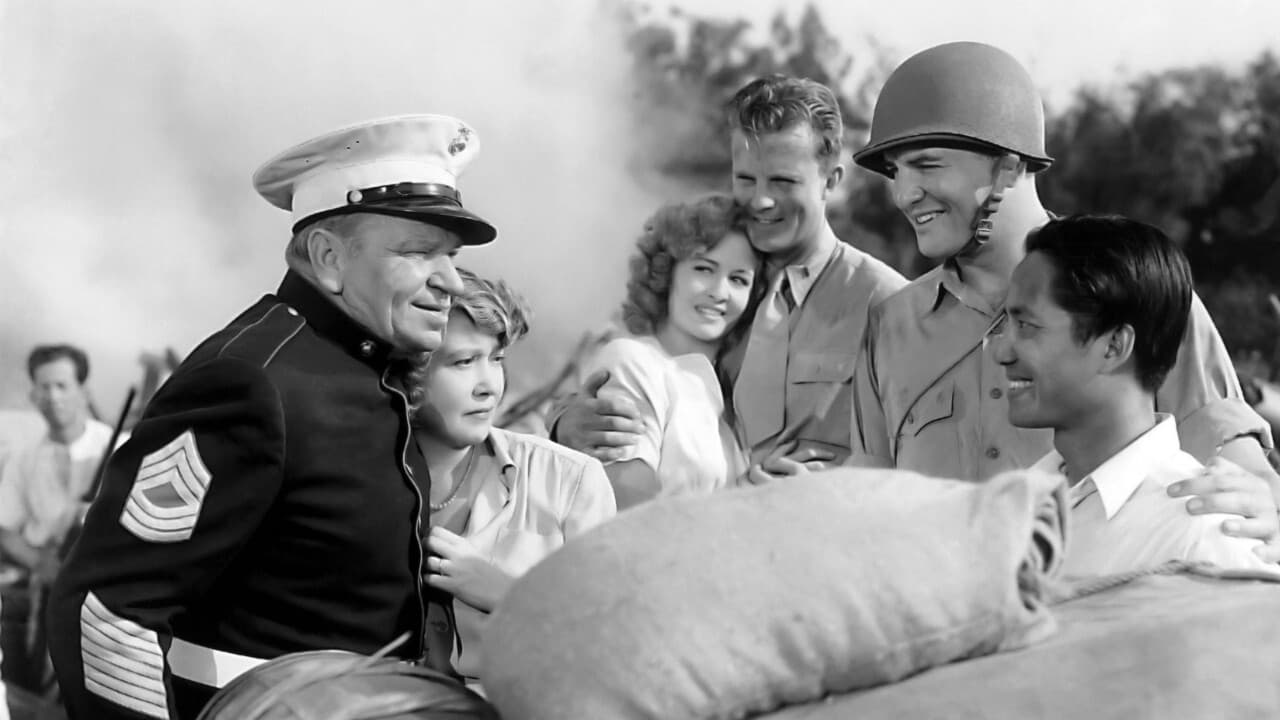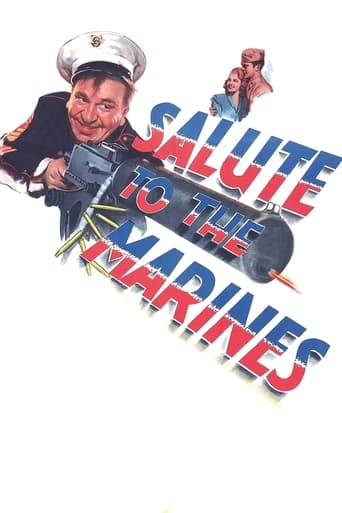Perry Kate
Very very predictable, including the post credit scene !!!
Flyerplesys
Perfectly adorable
Skunkyrate
Gripping story with well-crafted characters
Roy Hart
If you're interested in the topic at hand, you should just watch it and judge yourself because the reviews have gone very biased by people that didn't even watch it and just hate (or love) the creator. I liked it, it was well written, narrated, and directed and it was about a topic that interests me.
Robert J. Maxwell
Well, I am a fan of the Marine Corps. True, I spent my four-year military career in the Coast Guard but it was just as rugged as the Marine Corps. It was very nice to be served breakfast in bed by the attractive, blond, seventeen-year-old Swedish maids but there must be no expression in Swedish for "medium rare" because they kept fouling up the steak and eggs. But I taught the Marines at Camp Lejeune for several years and they were among the best of students. When they're sharp, they're really sharp. It's also the only service in which the officers' dress uniforms were less gaudy than the enlisted man's.With that prologue out of the way I can now go on to say that Wallace Beery is no marine. My God, is he sloppy. His whole presence is one pile of flab upon another. He was fine as the comically sly Long John Silver but as a by-the-book top sergeant, he's plain incredible. It's almost painful, watching him rearrange the manifold dimples and gyri of his face into one or another expression.The movie, told mostly in flashback, begins in 1941 in the Philippines. Beery's job, as it must be in all such movies, is to bear down on his men and kick them into shape, the Filipino troops included, before he retires. That impending retirement is an event he dreads because he has never won any "battle decorations." He gets his chance. He retires at the proper time but just as he's finding out that inactivity doesn't suit him the Japanese invade the Philippine Islands pari passu. The "bandy legged Nips" and "monkeys" conquer town after town, forcing all the civilians to flee ahead of them. A determined Beery struggles into his dress blue blouse, mobilizes the American and Filipino troops, and stops the enemy long enough for the women and children to escape across the bridge.They're successful despite the bombs delivered by Japanese airplanes. The Japanese airplanes are dull-colored Vought Vindicators, an obsolete American dive bomber of the period, called disparagingly by pilots the "Vibrator" or "Wind Indicator." The Vindicator also plays itself, when American airplanes rush to the rescue of the beleaguered bridge defenders.Fans of old movies may enjoy it. There are a lot of familiar names in the cast but you won't notice them on the screen. The kids may get a kick out of it. But it's really made for Saturday afternoons when people went to the movies and didn't really care much about what was on the screen. William Manchester -- historian, journalist, and biographer of John F. Kennedy -- claimed that he was seduced into joining the Marines after seeing the snazzy uniforms in "The Shores of Tripoli." One look at Wallace Beery wrestling to get into his tent-sized blouse, and Manchester would have joined the Coast Guard.
Steyr808
First one needs to remember this film was made DURING the war. Anti Japanese resentment following Pearl Harbor and things like the Bataan Death March were running high. And make no mistake, this film is pretty heavy on the anti Japanese message.But that is also one of the things that makes it interesting. It is a glimpse into how people at the time were actually thinking. And while the "dirty japs" were portrayed as squinty, murdering savages we must remember that at the time it wasn't a completely unfair criticism.The film is also unique in that it has a light "comedy" aspect to it. Wallace Beery manages something like an Archie Bunker quality. Probably much needed comic relief given that the news from the war was not always uplifting.But the final thing one needs to keep in mind is the purpose of this film and ones like it. It was designed to unify the nation against a common enemy. And that is how wars are won. And if the worst thing that happens is our enemies are portrayed in a negative light, well that is hardly the worst thing that happens during wars.
Fred_Rap
In this leisurely-paced Technicolor flag-waver, grizzled, beer-bellied lout Wallace Beery plays a thirty-year sergeant major stationed in the Philippines just before the war. When he's forced into retirement, long-suffering wife Fay Bainter has to cope with his refusal to adapt to civilian life in their sleepy island village. He antagonizes the peace-loving neighbors with his gross manners and anti-Japanese sentiments, trains the local children in military maneuvers, and gets into brawling confrontations with shifty Niponese sailors. But once Pearl Harbor is attacked and the enemy advances on their town, Beery rallies the villagers to defense and goes out in a blaze of glory.The climactic combat action is a long time coming, since the bulk of the movie is devoted to Beery's fatuous, self-aggrandizing antics. Whether condescending to his native troops (he refers to them as "little fellers" as though they were exotic incarnations of Jackie Cooper) or pouring on the 'aw shucks' geniality to a passel of adoring kids, this slob-king is a grating, grandstanding humbug. (What appeal could this man have possibly held for contemporary audiences? Perhaps as a fanciful role model for home front-bound middle-aged men -- the run-to-seed but still vital codger.)No less phony is the hubba-hubba Marilyn Maxwell as his incessantly smirking daughter; it's tough enough to believe the refined, genteel Bainter could have ever had a booty call with Beery, much less produced so dishy a specimen from such rot-gut sperm.If one can last through all this spurious slop, the final thirty minutes deliver a Johnny-come-lately wallop. As Japanese bombers hover over a crowded church, director S. Sylvan Simon uses rapid-fire editing to build tension to a fever pitch. What follows is a grand scale action set-piece that is eye-filling and surprisingly fierce, weakened only by the unhinged spectacle of the tubby, lead-footed Beery traipsing through brush to single-handedly knock out an enemy machine gun emplacement. The movie seems to be telling us that a regiment of lumbering, dissipated fat men could have shortened the war by years. Fat chance.
dbot
gives a memorable performance. The jungle scene near the end of the movie is one of most moving scenes that I've ever witnessed. This film deserves preservation consideration. And why it's not available on DVD or VHS is a mystery.

